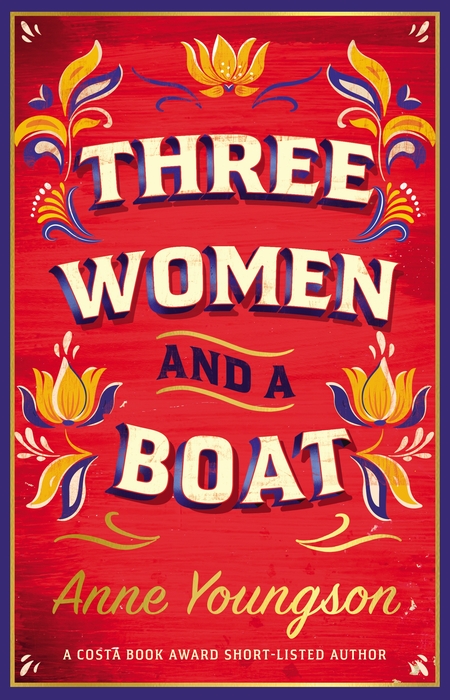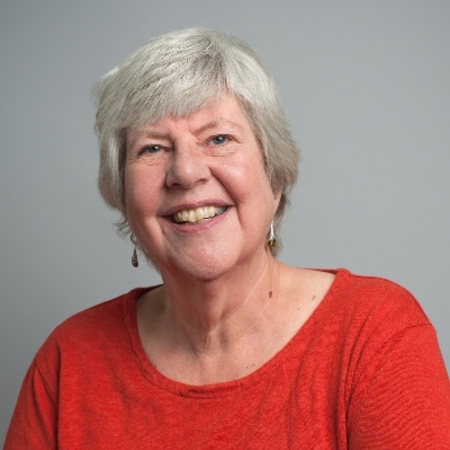People coming together in found families is something particularly new or original in literature of late, a theme that has found currency in our ironically disconnected digital age where finding your tribe has been a prevailing need for many lost souls in search of an emotional home.
So, the fact that Three Women and a Boat by Anne Youngson features a coming together of a disparate grouping of people should not as any real surprise.
What is delightful, however, is how beautifully Youngson describes how Eve, Sally and Anatasia come together, three women who in the ordinary course of life would likely never have come together in any meaningful way, if at all.
And three more different people you couldn’t find.
Eve is an overweight middle age woman who has just been made redundant from a company to which she devoted thirty years of her life, a shocking development that gives her the chance to become the Free Spirit she never really knew she wanted to be and which sets in motion some seriously unexpected reinventing that sees her eschewing so many things that had hitherto come to define her life.
Sally is also facing great change but hers is self-initiated with the mother of two grown children and husband to the kindly but unremarkable Duncan deciding that she wants more from life that tending to the house and the garden and watching the latest instalment of a long-watched soap opera.
“On the screen the match ended and the watchers drifted away. It was quiet in the pub and Sally had the relaxed feeling, which often came to her in public places, of being alive and safe but without responsibility for herself or anyone else. She had a fondness for supermarkets, where there were always light and people, where it seemed impossible that death, decay and emotional trauma should exist.” (P. 43)
Change is, of course, the constant here though it manifests differently for each woman, a dynamic that also affects Anastasia, the fiercely independent older owner of a narrowboat named Number One who is facing some major health issues and need someone to look after her floating home and take it for repairs down in Chester from Uxbridge in the UK while she undergoes a potentially life-saving operation.
The coming together of these three wholly different women takes place courtesy of Anastasia’s dog Noah, a loose cannon of a canine who howls every time he is left behind by his owner, creating the type of ruckus that two strangers passing along the towpath next to the canal can’t help but notice.
Long story short, they free Noah, meet Anastasia who rather unconventionally for Eve and Sally but wholly in keeping with her idiosyncratically blunt and no-nonsense character, asks them to give up a couple of months to take her narrowboat to Chester for necessary repairs.
It’s an audacious ask but Eve and Sally surprise themselves by agreeing and roughly ten days later set off on the adventure of a lifetime which transforms them in ways they simply don’t see coming but end up being wholly welcomed by the two women who become firm friends and who needs that kind of wholesale change to upend their staid and unthought through lives.
As they learn how to steer a narrowboat down the Grand Union Canal then into the Shropshire Union Canal and then back some time later via the Trent and Mersey, Coventry and Oxford canals, a great deal more happens that two women delivering a boat somewhere it needs to be.
For a start they become friends, friends who don’t always get along perfectly but who get each other in ways that prove to be necessary in shaping who they are becoming and where they will end up.
As they get to know each other, they also come to appreciate the warm eccentricities of life on the canal which comes with its own unique set of characters, a mainstream mindset-defying approach to living and a whole new family made of other canal dwellers like Trompette and Arthur and people like Jacob and Vic back home in Uxbridge, Eve’s neighbours that she never really got to know during her three decade long enslavement to corporate life.
What makes Three Women and a Boat such a transcendent joy to read is that Youngson doesn’t pretend life is all cute and fluffy and untroubling at any stage in this more emotionally muscular than you might expect story.
In fact, while there is definitely a warm and fuzzy undercurrent of lost and uncertain people coming restoratively together, and it’s bound to inspire you in ways you didn’t know you needed, Three Women and a Boat is also willing to address major issues of life change and possible end of life and whether it’s ever too late to reinvent yourself and become the person you always suspected might be lurking just below the surface of all the inevitable banality of life.
“Eve went to the post office to collect their post. She had had very little, until now, but she was hoping Jacob would have remembered his promise to send a cookery book, although she told herself he probably would not have done so. Sally was always please to receive her post because none of it was related to the boring business of operating bank accounts and household affairs. She had walked out of her life and left her husband to sort all that out. Eve did not know whether to be scornful or impressed.” (P. 209)
It goes deep into why Eve suddenly now wants to be free and unfettered by cubicles, corporate misogyny and an existence so busy she doesn’t even have time to stop and get to know her neighbours and it’s unafraid to explore why it is that Sally leaves what is, on the surface at least, a perfectly functional and normal marriage, ignoring the tsk-tsks of the Greek chorus of conformists who don’t quite understand that appearances can be considerably deceptive.
Three Women and a Boat also wonderfully celebrates lifelong free spirits like Anastasia, without once pretending that they are unassailable by life’s many stresses and worries and that maybe beneath the brash exterior, there is a vulnerable person who wants heartfelt, meaningful connection as much as the next person.
Youngson bravely goes right beneath the surface of all these women’s lives, and those of the supporting characters, unwilling to simply serve heartwarmingly useful cardboard cutouts of characters whose only apparent purpose is to advance a narrative devoted assuring us that life can be changed and renewed and that your people, your true and endlessly supportive tribe, are out there waiting for you.
That that happens is undeniable; Three Women and a Boat very much sits comfortably in the reinvent your life genre and makes no apologies for its place in that particular of the great pantheon of literary ambition.
But it goes well beyond the usual tropes and cliches, with wit, warmth, insight and true understanding, offering an genuinely affecting, authentic tale of what can happen when you toss convention and expectations overboard and see where life can take you, physically, emotionally and existentially.
Set on the glorious gentle and calming canals of England, where reinvention and being true to yourself seems to be a given, Three Women and a Boat is a wholly moving and funny delight, the kind of novel that makes you feel like life is a big, cosy blanket with the right people around you but which understands that all that cosiness come with lots of heartache and thoughtfulness and that good things do come to those prepared to go deep into their hearts and stare down what is in the vaulting hope of what might be.

